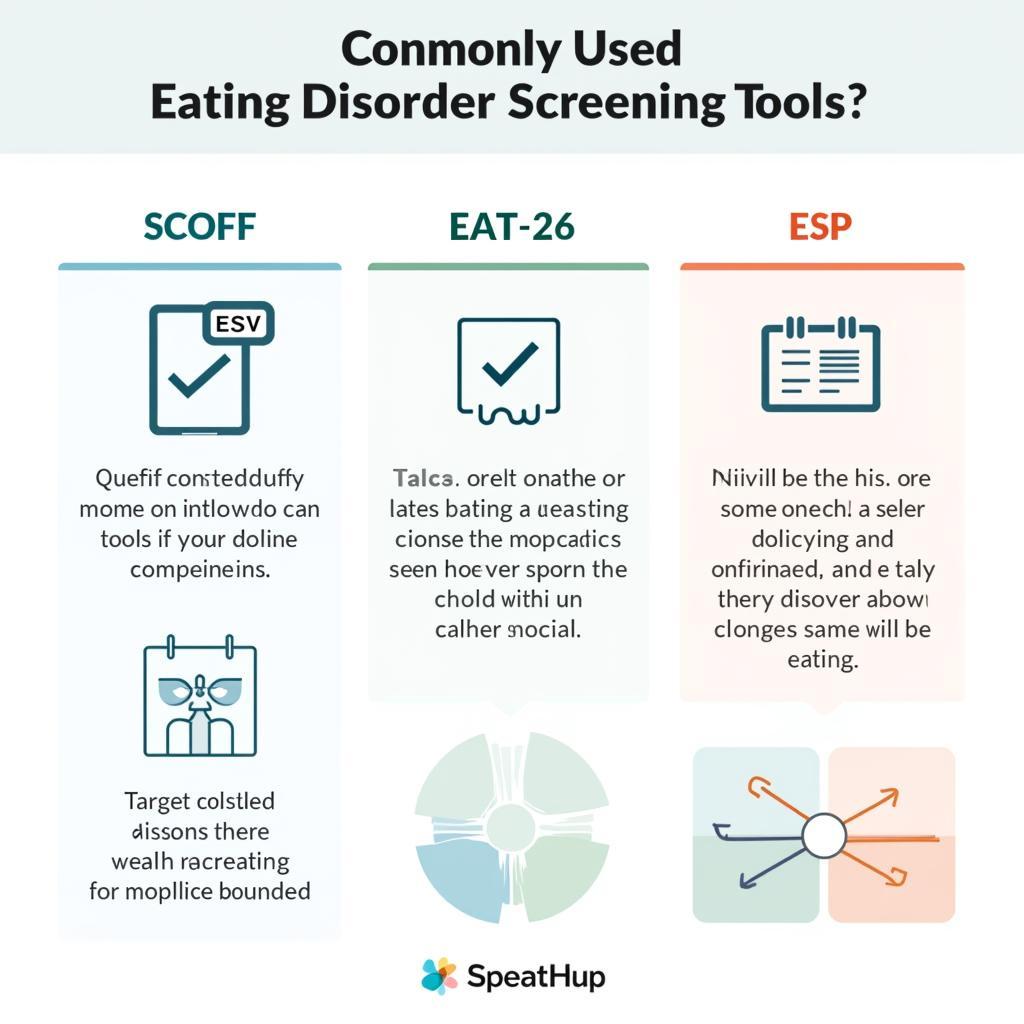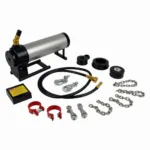Eating disorder screening tools are essential resources for primary care providers. Early identification and intervention are crucial for effectively managing eating disorders, and these tools help bridge the gap between suspicion and diagnosis. They provide a structured approach to assess risk factors and symptoms, allowing for timely referral and support.
Why Use an Eating Disorder Screening Tool in Primary Care?
Eating disorders often present with subtle physical and behavioral symptoms, easily overlooked in a busy primary care setting. Utilizing a standardized screening tool helps ensure that potential cases are identified promptly. Early intervention is linked to improved treatment outcomes and reduces the likelihood of long-term complications. Furthermore, using a standardized approach provides a consistent framework for assessment across different patients and providers. What are some common tools used in this context? Let’s explore.
Selecting the Right Eating Disorder Screening Tool
Several validated screening tools are available for use in primary care. The screening tools for mental health in primary care provide a comprehensive view of a patient’s mental well-being. Choosing the appropriate tool depends on factors such as the patient’s age, presenting concerns, and the specific eating disorder suspected. Some commonly used tools include the SCOFF questionnaire, a quick five-question tool, and the EAT-26, a more comprehensive self-report measure.
What are the benefits of using the SCOFF questionnaire? It’s brief and easy to administer, making it ideal for busy primary care settings. What about the EAT-26? While longer, it offers a more detailed assessment of eating disorder symptoms. The si evaluation tools used in health care article offers a broader view on healthcare assessment techniques.
Implementing Screening Tools Effectively
Effective implementation of eating disorder screening tools involves more than simply administering the questionnaire. It requires a sensitive and empathetic approach. Patients need to feel comfortable disclosing personal information, and providers need to be prepared to address any concerns that arise. Clear communication about the purpose of the screening, confidentiality, and next steps is essential for building trust and ensuring accurate results.
Addressing Positive Screening Results
A positive screening result indicates a higher risk for an eating disorder, not a definitive diagnosis. Further evaluation by a mental health professional is necessary to confirm the diagnosis and develop an appropriate treatment plan. Primary care providers play a vital role in facilitating these referrals and providing ongoing support to patients throughout the process. Tools like the anxiety disorder screening tool for primary care can be useful in assessing co-occurring conditions.
Conclusion
Eating disorder screening tools for primary care are invaluable resources for early identification and intervention. By incorporating these tools into routine practice, primary care providers can significantly impact the lives of their patients, promoting early recovery and reducing the burden of these complex illnesses. Understanding the trauma informed oregon trauma informed care screening tool can also provide helpful context for understanding patient experiences. Remember, early detection and intervention are key to successful eating disorder treatment.
Frequently Asked Questions:
- How often should eating disorder screening be conducted in primary care?
- What are some signs and symptoms of eating disorders that primary care providers should be aware of?
- What are the limitations of eating disorder screening tools?
- What resources are available to support primary care providers in addressing eating disorders?
- How can primary care providers communicate effectively with patients about eating disorder screening results?
- What are the different types of eating disorders?
- How can I find a qualified mental health professional specializing in eating disorders?
Need Help? Contact us via WhatsApp: +1(641)206-8880, Email: cardiagtechworkshop@gmail.com or visit us at 910 Cedar Lane, Chicago, IL 60605, USA. We have a 24/7 customer support team.


